- Home
- Conn Iggulden
Gengis: Lords of the Bow Page 15
Gengis: Lords of the Bow Read online
Page 15
“We are not here to fight river thieves,” Temuge said at last. “With just a knife, what could I have done?”
“Get some sleep, if you can,” Ho Sa replied gruffly. “I do not think we will be stopping again for a few days.”
♦ ♦ ♦
It was a beautiful winter’s day in the mountains. Genghis had ridden with his wife and sons to a river he had known as a boy, far from the vast camp of the tribes. Jochi and Chagatai had their own ponies, while Borte walked her mount behind them with Ogedai and Tolui perched high on the saddle.
As they had left the tribes, Genghis felt his mood lighten. He knew the land under his mare’s hooves, and he had been surprised at the wave of emotion that had struck him on first returning from the desert. He had known the mountains had a hold on him, but to his astonishment, feeling the turf of his childhood under his feet had brought tears to his eyes, quickly blinked away.
When he had been young, such a trip would always have had an element of danger. Wanderers or thieves could have roamed the hills around the stream. Perhaps there were still a few who had not joined him in his journey south, but he had a nation at his heels in the encampment and the hills were empty of flocks and herdsmen.
He smiled as he dismounted, watching with approval as Jochi and Chagatai pulled bushes together and tied the reins of their mounts. The river ran fast and shallow at the foot of a steep hill nearby. Jagged shards of ice tumbled past from where they had broken free in the peaks. Genghis looked up the slopes, remembering his father and how he had once climbed for eagles on the red hill. Yesugei had brought him to the same place and Genghis had seen no joy in the man, though perhaps it had been hidden. He resolved not to let his sons see his own pleasure in being back amongst the trees and valleys he knew so well.
Borte did not smile as she lowered her two youngest sons to the ground before slipping down herself. There had been few easy words between them since he had married the daughter of the Xi Xia king, and he knew she would have heard of his nocturnal visits to the girl’s ger. She had not mentioned it, but there was a tightness around her mouth that seemed to grow deeper every day. He could not help but compare her to Chakahai as she stood and stretched in the shade of the trees that leaned over the river, casting the water into shade. Borte was tall; wiry and strong where the Xi Xia girl was soft and pliable. He sighed to himself. Either one could stir him to lust with the right touch, but only one seemed to want to. He had spent many nights with his new wife while Borte remained alone. Perhaps because of that, he had arranged this trip away from the warriors and the families, where eyes always watched and gossip flowed like spring rain.
His gaze fell on Jochi and Chagatai as they approached the stream’s edge and stared into the flowing water. No matter how things stood with their mother, he could not leave the boys to bring themselves to manhood, or allow their mother to do so. It was too easy to remember Hoelun’s influence on his brother Temuge and how it had made him weak.
He strode up behind his two eldest sons and repressed a shudder at the thought of entering the freezing water. He recalled the time he had hidden from enemies in such a place, his body growing numb and useless while the life leached out of it. Yet he had survived and grown stronger as a result.
“Bring the other two close,” he called to Borte. “I would have them listen even if they are too young to go in.” He saw Jochi and Chagatai exchange a worried glance at this confirmation of their purpose. Neither relished the idea of stepping into the icy river. Jochi stared up at Genghis with the same flat, questioning gaze he always used. Somehow it made his father’s temper prickle and he looked away as Borte brought Tolui and Ogedai to stand at the bank.
Genghis felt Borte’s eyes on him and waited until she had moved off and seated herself by the ponies. She still watched, but he did not want the boys turning to her for support. They had to feel alone to test themselves and for him to see their strength and their weaknesses. They were nervous around him, he saw, blaming himself for the time he had spent apart from them. How long had it been since he braved the disapproving glares of their mother to play with one of them? He remembered his own father with love, but how would they remember him? He pressed such thoughts from his mind, recalling Yesugei’s words in the same place, a lifetime ago.
“You will have heard of the cold face,” he said to the boys. “The warrior’s face that gives nothing away to your enemies. It comes from a strength that has nothing to do with muscles, or how well you bend a bow. It is the heart of dignity that means you will face death with nothing but contempt. Its secret is that it is more than a simple mask. Learning it brings its own calm, so that you have conquered fear and your flesh.”
With a few quick jerks, he freed his sash from his deel and removed his leggings and boots, standing naked on the edge of the river. His body was marked with old scars and his chest was whiter than the dark brown of his arms and legs. He stood without embarrassment before them, then walked into the freezing torrent, feeling his scrotum tighten as the water touched it.
As he lowered himself into the water, his lungs stiffened so that each breath became a struggle. Nothing showed on his face and he watched his sons without expression as he dipped his head under the water, then lay back, half floating with his hands touching the stones of the riverbed.
The four boys watched in fascination. Their father seemed completely at ease in the icy water, his face as calm as it had been before. Only his eyes were fierce and they could not hold his gaze for long.
Jochi and Chagatai exchanged a look, daring each other. Jochi shrugged and stripped without self-consciousness, striding into the water and plunging himself under the surface. Genghis saw him shiver at the cold, but the muscular boy glared back at Chagatai as if in challenge, waiting. He hardly seemed aware of his father, or the lesson he intended to teach.
Chagatai snorted in disdain, untying his own clothes. At six, Ogedai was still much smaller than the others. He too began to strip and Genghis saw their mother rise to her feet to call him away.
“Let him come in, Borte,” he said. He would watch to see his third son did not drown, though he would not give him comfort by saying it aloud. Borte winced fearfully as Ogedai stepped into the water just a pace behind Chagatai. It left just Tolui standing miserably on the bank. With great reluctance, he too began to remove his deel. Genghis chuckled, pleased with his spirit. He spoke before Borte could interfere.
“Not you, Tolui. Perhaps next year, but not this time. Stay there and listen.”
The relief was obvious on the little boy’s face as he retied the cloth around his waist in a neat knot. He answered his father’s smile with one of his own, and Genghis winked at him, causing Tolui to grin.
Jochi had chosen a pool at the edge of the river, where the water was still. He watched his father with all but his head submerged, and in the brief exchange, he had found control of his breath. His jaw was clamped against chattering teeth and his eyes were wide and dark. As he had a thousand times before, Genghis wondered if he was the boy’s father. Without that certainty, a barrier remained in his affection. At times, the barrier was strained, for Jochi was growing tall and strong, but still Genghis wondered if he saw the features of a Tartar rapist, one whose heart he had eaten in revenge. It was difficult to love such a face with those dark eyes, where his own were wolf-yellow.
Chagatai was so clearly his son, it was painful. His eyes were pale with the cold as he settled himself in the water, and Genghis had to take a grip on his affection before he spoiled the moment. He forced himself to take a deep, slow breath.
“In water this cold, a child can slip into sleep in six or seven hundred heartbeats. Even a grown man can become unconscious in a little longer. Your body begins to die at the hands and feet first. You will feel them grow numb and useless. Your thoughts become slow and, if you stay too long, you will not have the strength or the will to climb out.” He paused for a moment, watching them. Jochi’s lips had turned blue and still he had not
made a sound. Chagatai seemed to be struggling against the cold, his limbs twisting in the water. Genghis watched Ogedai closest of all as he tried to copy his older brothers. The effort was too much for him and Genghis heard his teeth clatter together. He could not keep them there much longer and he considered sending Ogedai back to the bank. No, his father had not, though little Temuge had fainted toward the end and almost drowned.
“Show me nothing of what you feel,” he said to them. “Show me the cold face that you will show to enemies who taunt you. Remember that they too are afraid. If you have ever wondered if you were the only coward in a world of warriors, know that they feel the same, to the last man. In knowing that, you can hide your own fear and stare them down.” All three boys struggled to empty their faces of fear and pain, and on the bank, little Tolui mimicked them in earnest concentration.
“Breathe gently through the nose to slow your heart. Your flesh is a weak thing, but you do not have to listen to its cries for help. I have seen a man push a knife through his own flesh without blood falling. Let that strength come to you and breathe. Show me nothing and be empty.”
Jochi understood at once and his sipping breath became slow and long in perfect imitation of his father’s. Genghis ignored him, watching Chagatai as he struggled to bring himself under control. It came at last, close to the time that Genghis knew he had to end it before they passed out in the water.
“Your body is like any other animal in your care,” he told them. “It will clamor for food and water, warmth and relief from pain. Find the cold face and you will be able to shut out its clamoring voice.”
The three boys had grown numb and Genghis judged it was time to take them out. He expected to have to lift the limp boys to the bank and he rose to take hold of the first. Instead, Jochi stood with him, his body blooming pink with blood under the skin. The little boy’s eyes never left his father as Genghis touched a hand to Chagatai’s arm, not wanting to lift him after Jochi had risen on his own.
Chagatai stirred drowsily, his eyes glassy. He focused on Jochi and when he saw him standing, he clamped his mouth shut and struggled up, slipping on the soft mud below the surface. Genghis could feel the enmity between the two boys, and he could not help but remember Bekter, the brother he had killed so many years ago.
Ogedai could not stand on his own and his father’s strong arms placed him back on the bank to dry in the sun. Genghis strode out with water streaming from his flesh, feeling life return to his limbs with a rush of energy. Jochi and Chagatai came to stand with him, gasping as their hands and feet came back to life. They sensed their father was still watching them and each boy understood and tried to control his body once again. Their hands shook beyond any control, but they stood straight in the sunlight and watched him, not trusting their shuddering jaws for speech.
“Did it kill you?” Genghis asked them. Yesugei had asked the same thing and Khasar had said, “Almost,” making the big man laugh. His own sons said nothing and he saw that he did not have the friendship with them that he had enjoyed with Yesugei. He would spend more time with them, he vowed. The Xi Xia princess was like a fire in his blood, but he would try to ignore the call more often while the boys grew.
“Your body does not rule you,” he said, as much for himself as for them. “It is a stupid beast that knows nothing of the works of men. It is merely the cart that carries you. You control it with will and with breath through your nose, when it calls for you to pant like a dog. When you take an arrow in battle and the pain is overwhelming, you will press it away and, before you fall, you will return death to your enemies.” He glanced up the hillside, at memories of days so innocent and far away that he could hardly bear to recall them.
“Now fill your mouths with water and run to the top of this hill and back. When you return, you will spit the water to show you breathed properly. Whoever is first will eat. The others will go hungry.”
It was not a fair test. Jochi was older, and at such an age, even a year made a difference. Genghis showed no sign of his awareness as he saw the boys exchange glances, weighing the odds. Bekter too had been older, but Genghis had left his brother gasping on the hill. He hoped Chagatai would do the same.
Chagatai broke for the water without warning, charging in with a great spray and dipping his face to the surface to suck up a mouthful. Ogedai was only a little behind. Genghis remembered how the water had become warm and thick in his mouth. He could taste it with the memories.
Jochi had not moved and Genghis turned to the boy questioningly.
“Why are you not following?” he asked.
Jochi shrugged. “I can beat them,” he said. “I know it already.”
Genghis stared at him, seeing defiance he could not understand. None of Yesugei’s sons had refused the task. The boy Genghis had been had relished the chance to humiliate Bekter. He could not understand Jochi and he felt his temper flare. His other sons were already struggling up the hill, growing smaller in the distance.
“You are afraid,” Genghis murmured, though he was guessing.
“I am not,” Jochi replied without heat, reaching for his clothes. “Will you love me more if I beat them?” For the first time, his voice shuddered with strong emotion. “I do not think you will.”
Genghis looked at the little boy in astonishment. Not one of Yesugei’s sons would have dared to speak to him in such a way. How would his father have responded? He winced at the memories of Yesugei’s hands clipping him. His father would not have allowed it. For an instant, he considered knocking sense into the boy, but then he saw that Jochi expected it and had tensed himself for the blow. The impulse died before it was born.
“You would make me proud,” Genghis said to him.
Jochi shook, but it was not from the cold. “Then today, I will run,” he said. His father watched without understanding as Jochi took a mouthful of the river and set off, running fast and sure over the broken ground after his brothers.
When it was quiet again, Genghis walked little Tolui back to where Borte sat by the ponies. She was stony-faced and did not meet his eyes.
“I will spend more time with them,” he told her, still trying to comprehend what had happened with Jochi. She looked up at him and for an instant her face softened as she saw his confusion.
“He wants nothing more in the world than to be accepted by you as your own,” she said.
Genghis snorted. “I do accept him. When have I not?”
Borte rose to her feet to face him. “When have you taken him in your arms? When have you told him how proud you are of him? Do you think he has not heard the whispers of the other boys? When have you silenced the foolish ones with some display of affection?”
“I did not want to make him soft,” he said, troubled. He had not known it had been so obvious, and for a moment, he saw how hard a life he had forced on Jochi. He shook his head to clear it. His own life had been harder and he could not force himself to love the boy. As every year passed, he saw less and less of himself in those dark eyes.
His thoughts were interrupted by Borte’s laugh. It was not a pleasant sound.
“The bitterest thing of all is that he is so obviously your son, more than any of the others. Yet you cannot see it. He has the will to stand up to his own father and you are blind.” She spat into the grass. “If Chagatai had done the same, you would be grinning and telling me the boy had his grandfather’s courage.”
“Enough,” he said quietly, sick of her voice and her criticism. The day had been spoiled for him, a mockery of the joy and triumph he remembered when he had come to that place with his own father and brothers.
Borte glared at his angry expression. “If he beats Chagatai down the hill, how will you react?” she said.
He cursed, his mood as sour as old milk. He had not considered that Jochi might still win, and he knew that if he did, he would not embrace the boy with Borte watching. His thoughts swirled without release and he did not know how he would react at all.
Temuge li
stened to Khasar’s grunting with a furious expression. His brother had earned a great deal of goodwill among the crew with his response to the attack. In the days after those terrifying moments in the dark, Chen Yi regularly included the Mongol warrior in the camaraderie of the boat. Khasar had learned many phrases in their language and shared their rations of hard spirit and balls of rice and shrimp in the evening. Ho Sa too seemed to have warmed to the boat master, but Temuge remained resolutely apart. It did not surprise him to see Khasar acting like an animal with the others, hanging his backside over the side and defecating into the river in broad daylight. He had no understanding and Temuge wished Khasar would realize that he was nothing more than a bowman sent to protect his younger brother. Genghis, at least, knew how valuable Temuge could be to him.
On the night before they left for the river, Genghis had summoned Temuge and asked him to remember every detail of the walls of Baotou, every part of the defenses. If they failed to return with the masons who had constructed the city, that knowledge might be all they had to begin a summer campaign. Genghis trusted Temuge’s memory and the keen intelligence that Khasar evidently lacked. Temuge had recalled the urgency in frustration when they passed a boat with two female crew and Khasar waved silver coins at them, inviting them over.
There was no privacy in the boat and Temuge could only stare at the water rather than watch as two young women stripped off and swam across like otters, gleaming and shivering as they came on board. Chen Yi had thrown out an anchor in the deep water so the women could swim back when the crew were finished with them.
Temuge closed his eyes at the squealing sounds that came from the second of the two women. She was small breasted and lithe, attractive in her youth, though she had not looked in his direction as she accepted Khasar’s coin. The sounds she made were only interrupted when Khasar’s plunging efforts knocked her hand open and the coin rolled away, causing laughter from the watching crew as she pushed him off and scrambled for it on her hands and knees. Temuge observed from the corner of his eye as Khasar took advantage of the opportunity, and the girl’s giggling made him swear under his breath. What would Genghis think of this delay to their planning? They had been given a task without equal in importance for the tribes. Genghis had made that clear. Without knowing how to enter the walled cities of the Chin, the Imperial soldiers would never be broken. It made Temuge furious while he waited for Khasar to finish for a second time. The day was being wasted and he knew that if he said anything, his brother would scorn him in front of the crew. Temuge burned with silent humiliation. He had not forgotten why they were there, even if Khasar had.

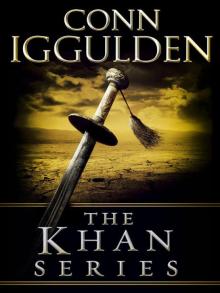 The Khan Series 5-Book Bundle
The Khan Series 5-Book Bundle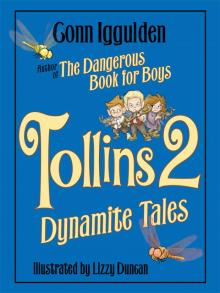 Tollins 2: Dynamite Tales
Tollins 2: Dynamite Tales Tollins: Explosive Tales for Children
Tollins: Explosive Tales for Children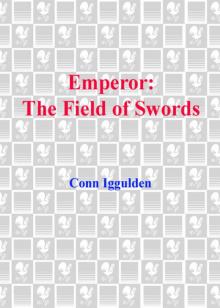 The Field of Swords
The Field of Swords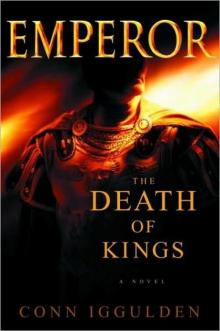 The Death of Kings
The Death of Kings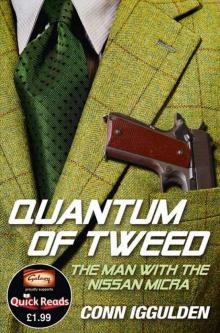 Quantum of Tweed: The Man With the Nissan Micra
Quantum of Tweed: The Man With the Nissan Micra Bones of the Hills
Bones of the Hills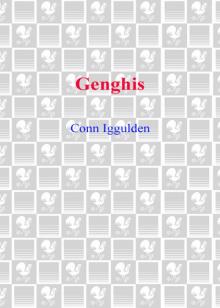 Genghis: Birth of an Empire
Genghis: Birth of an Empire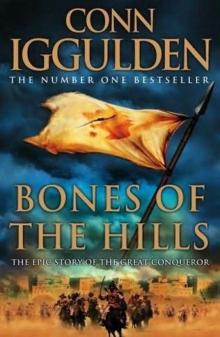 The Gates of Rome
The Gates of Rome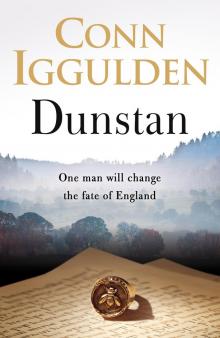 Dunstan
Dunstan Fig Tree
Fig Tree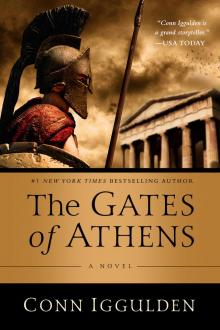 The Gates of Athens
The Gates of Athens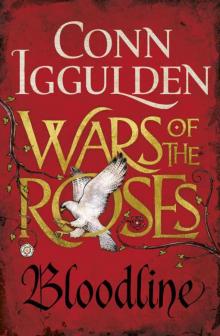 Stormbird
Stormbird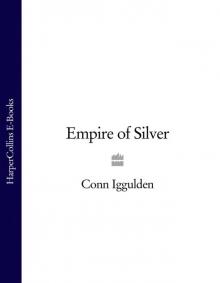 Khan: Empire of Silver
Khan: Empire of Silver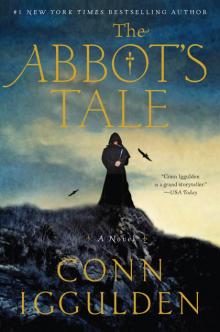 The Abbot's Tale
The Abbot's Tale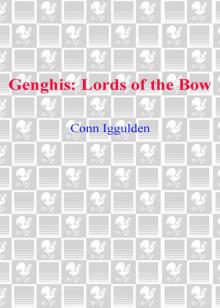 Gengis: Lords of the Bow
Gengis: Lords of the Bow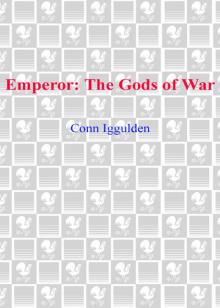 The Gods of War
The Gods of War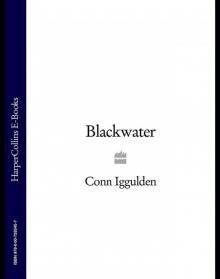 Blackwater
Blackwater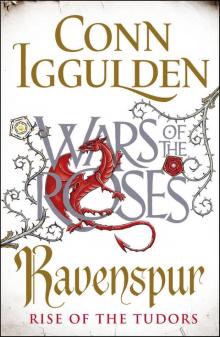 Ravenspur: Rise of the Tudors
Ravenspur: Rise of the Tudors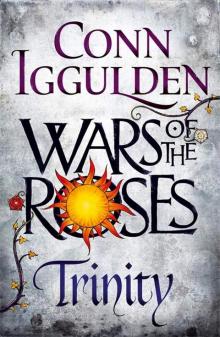 Wars of the Roses: Trinity (War of the Roses Book 2)
Wars of the Roses: Trinity (War of the Roses Book 2)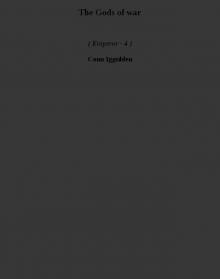 The Gods of war e-4
The Gods of war e-4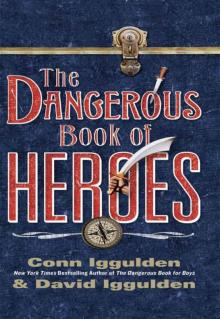 The Dangerous Book of Heroes
The Dangerous Book of Heroes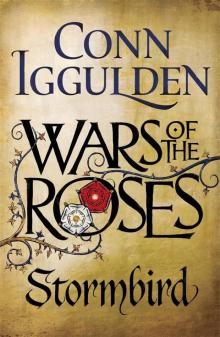 Stormbird wotr-1
Stormbird wotr-1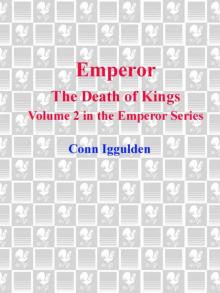 Emperor: The Death of Kings
Emperor: The Death of Kings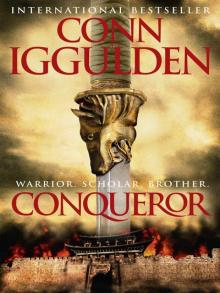 Conqueror (2011) c-5
Conqueror (2011) c-5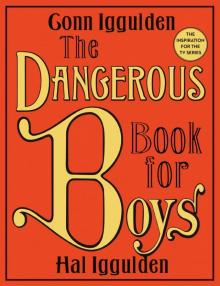 The Dangerous Book for Boys
The Dangerous Book for Boys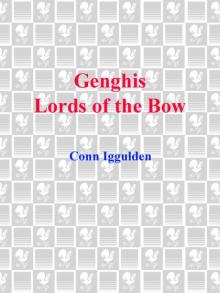 Genghis Lords of the Bow
Genghis Lords of the Bow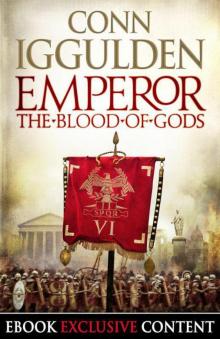 Emperor: The Blood of Gods (Special Edition) (Emperor Series, Book 5)
Emperor: The Blood of Gods (Special Edition) (Emperor Series, Book 5)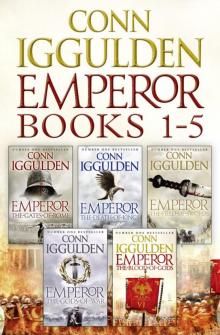 The Emperor Series: Books 1-5
The Emperor Series: Books 1-5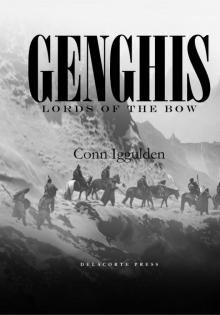 Lords of the Bow c-2
Lords of the Bow c-2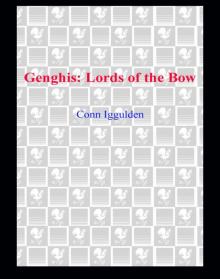 Lords of the Bow
Lords of the Bow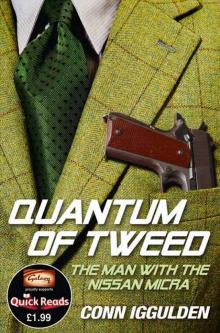 Quantum of Tweed
Quantum of Tweed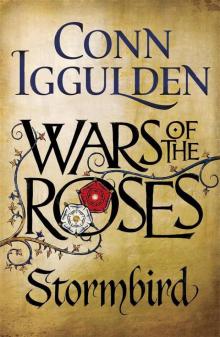 Wars of the Roses 01 - Stormbird
Wars of the Roses 01 - Stormbird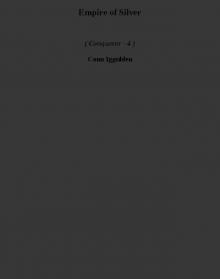 Empire of Silver c-4
Empire of Silver c-4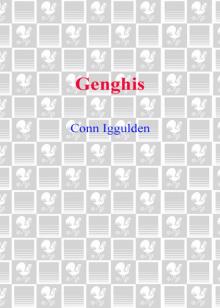 Birth of an Empire
Birth of an Empire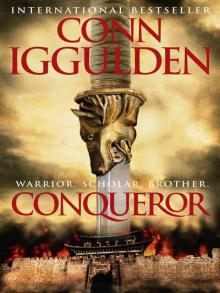 Conqueror (2011)
Conqueror (2011)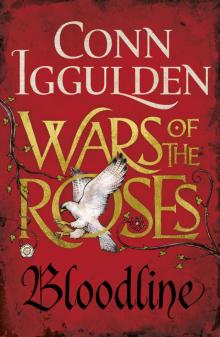 Wars of the Roses: Bloodline: Book 3 (The Wars of the Roses)
Wars of the Roses: Bloodline: Book 3 (The Wars of the Roses) Bones Of the Hills c-3
Bones Of the Hills c-3 Empire of Silver
Empire of Silver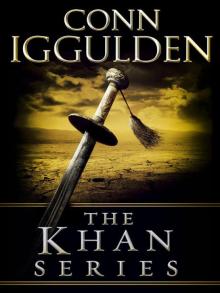 The Khan Series 5-Book Bundle: Genghis: Birth of an Empire, Genghis: Bones of the Hills, Genghis: Lords of the Bow, Khan: Empire of Silver, Conqueror
The Khan Series 5-Book Bundle: Genghis: Birth of an Empire, Genghis: Bones of the Hills, Genghis: Lords of the Bow, Khan: Empire of Silver, Conqueror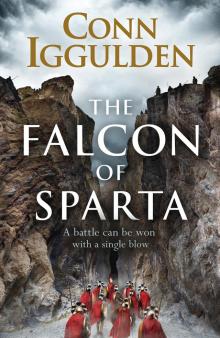 The Falcon of Sparta
The Falcon of Sparta Explosive Tales for Children
Explosive Tales for Children